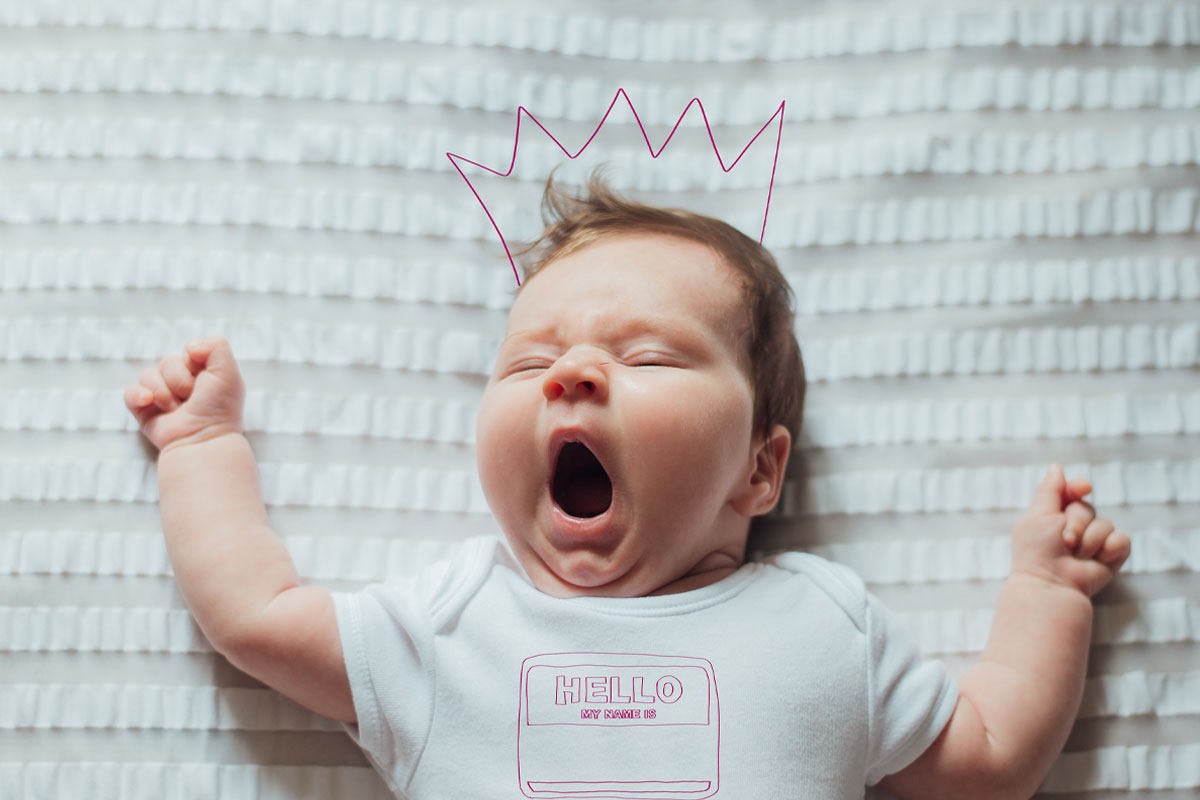“What a cute baby you have! What’s her name?”
I can see the confusion washing over my neighbor’s face. “Monica?”
I take a breath and say the name again, this time a little louder, enunciating each sound: “MAL-KA.”
The confusion remains. “Well, she is very cute…”
It’s not the first time, and certainly won’t be the last time, well-meaning people attempt to turn my daughter’s name into an Anglo name they recognize. From Makayla to Monica, to just an indignant “WHAT!” coworkers, neighbors and even nurses at the pediatrician’s office can’t seem to say it. Now, after a year and a half, each time I say her name I brace myself for an uncomfortable exchange, and always have a smile prepared for the inevitable follow-up: “It’s Hebrew; she is named after my grandmother.”
Before I was pregnant I didn’t give much thought to the significance of naming a child. Growing up, being named Brittany – with a double-T and an A, as in Snow, not Spears, before you ask – was basically a joke. I was one of four Brittanys in my class, so I always had to go by Brittany R. When another Brittany R. joined the class, well, that opened a whole other can of worms. At the end of the day, though, my name has no deeper meaning beyond the fact that my parents thought it sounded nice.
But as I prepared for the birth of my first child and began to think about names – with every naming app and website I visited giving me a thousand options to choose from – I was struck by how important they are.
My Hebrew name, for instance, is Miriam. Aside from 20 years ago, when my Hebrew teacher insisted on calling me Miriam each week, my Hebrew name has always felt irrelevant. When I called my mom to ask her about it she told me I was named for my great-grandfather Morris, a kind and gentle man who died very young. At 30 years old, I thought about this person, who no one had even spoken to me about, for the first time and regretted that I knew nothing about him. How was it that someone who had meant so much to others could fade into the background?
While my husband and I planned to honor the same Ashkenazi custom to name after a deceased relative, we wanted my daughter’s Hebrew name to be deep and meaningful. Since I was doing the heavy lifting in the pregnancy, we agreed that her first name would be after my relative and the middle after his. I knew right away I wanted her to be named for my mother’s mother, whose Hebrew name was Malka. She passed away when I was in college, and we were very close. She was strong and resilient while still having a warmth, compassion and love for family that I have never seen matched.
Choosing an English name was harder. My English name reflected nothing of my great-grandfather or the place he held in the hearts of those who knew him. I didn’t want that to happen to my daughter. And I didn’t want her Hebrew name, which was so precious to me, to be something that she got used to hearing in synagogue but would shake off the minute she hit the mall with friends. After a long discussion my husband and I decided that it made no sense to give our daughter two different names. We wanted her to know that wherever she goes and whatever she does, she will always carry with her the strength and love of those who came before her.
We settled on the name Malka Lila. Malka, my grandmother’s Hebrew name, means “queen.” I knew it would suit my daughter from the minute the ultrasound technician got annoyed at her refusal to cooperate with her attempts to scan her in utero. My daughter was a strong leader right from the start. Now, as a toddler, she marches to the beat of her own drum, and holds herself with the strength, beauty and dignity of a queen. Her middle name, Lila, is for my husband’s grandfather Leonard, a wonderful man who meant the world to my husband.
I would be lying if I said that upon Malka’s birth everyone was overjoyed at her name and thought it was beautiful. Many well-intentioned family members questioned why I would give my child such an outwardly “Jewish-sounding” name. Wasn’t I worried she would be picked on at school one day? I always respond that, as an educator today, I have seen many students come through my classrooms with names that represent their cultures or heritage – or unique names merely thought up by parents. As someone who experienced bullying growing up (having nothing to do with my name), I also know that you can be picked on for a number of reasons. Life can be challenging, people you think are your friends can be mean, and sometimes you get knocked down. My job as a mother is not to shield my daughter from every mean word or hurt feeling, because I cannot. My job is to be there for her, to build her up so she knows she is loved and can be proud of who she is, no matter what others say. And on some days, my job will be to sit and hold her when she cries because that is part of life, too.
I’m still navigating my version of Jewish observance as a mom wanting to impart a religion rich with tradition, culture and nuance to my daughter. For now, I feel proud every time she points to herself, smiles and says, “Balkie” (we are still working on the M sound).








